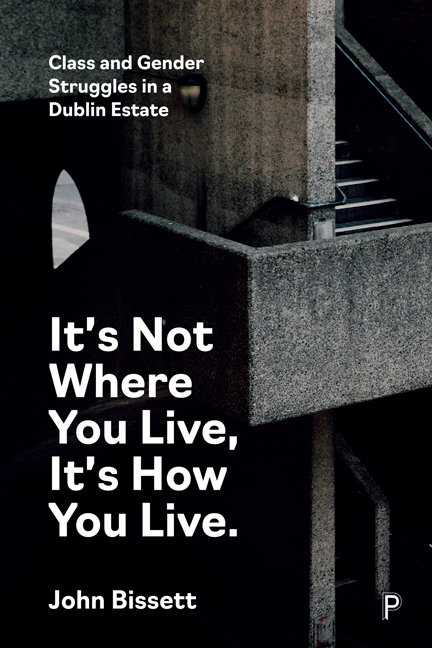10 - From manifest phenomena to generative structures
Published online by Cambridge University Press: 17 January 2024
Summary
Given the ethnographic thrust of this book, one could be forgiven for thinking that events and experiences are solely what constitute reality on the Bridgetown Estate. The lay narratives and practices of residents are undoubtedly critical in that they provide a window into a world, as it were. But I want to build on and to explore the meaning of these ‘thick descriptions’ (Geertz, 2017) of everyday phenomena and practices, and also to add to and even challenge the ethnographic perspective as possessing the whole or sole truth, as it were. It is perhaps worth reiterating Sayer's (2000, p 149) point from Chapter 1, when he says, ‘Grasping the whole is more difficult than grasping what happens next in the story.’ In the move from such manifest phenomena to generative structures things are perhaps not as obvious as they appear. Culture and structure, or, to put it another way, the episodic and the configurational (Sayer, 2000, pp 142– 143) are dialectically related in that practices of Bridgetown residents have roots, and perhaps make sense only in the context of their grounding and placement within social structure (Yeung, 1997; De Cocteau, 2012). This relationship between social action and (the reproduction or transformation of) social structure is outlined by Bhaskar (2009, p 133), working from a transcendental criticalrealist perspective, in the following way:
social structure is neither foreign nor something chosen by agents; rather it is what they reproduce or transform in the course of the more or less routine conduct of their everyday lives, as historically specific and axiologically necessary means and media. On the T.M.S.A. (Transformative Model of Social Action) social life, in virtue of its recursive quality, possesses a fundamentally non- teleological dynamic, in as much as agents reproduce or transform, for the most part (but not necessarily) in an unconscious and unmotivated way, the very structures they must draw upon and utilise, and which they are constrained and frustrated by, in their substantive practical productive activities. And it enables us to accept both the ‘objective’ and ‘subjective’ aspects of social existence without illicitly conflating them.
- Type
- Chapter
- Information
- It's Not Where You Live, It's How You LiveClass and Gender Struggles in a Dublin Estate, pp. 97 - 101Publisher: Bristol University PressPrint publication year: 2023



